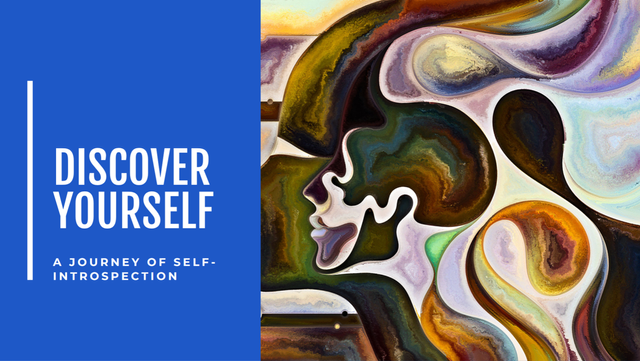"Knowing yourself is the beginning of all wisdom." - Aristotle
Self-introspection, also known as self-reflection or self-examination, is the process of looking inward to explore and understand your thoughts, feelings, actions, and motivations. It is a valuable practice for personal growth, gaining self-awareness, and making positive changes in your life. Here's a guide on how to engage in self-introspection:
Find a Quiet Space: Choose a quiet and comfortable environment where you can focus without distractions. Turn off electronic devices to minimize interruptions.
Set Aside Time: Dedicate a specific time for self-introspection. It could be a few minutes each day or a more extended period weekly.
Relax and Breathe: Take a few deep breaths to relax your mind and body. Allow yourself to be present in the moment.
Ask Yourself Questions: Pose open-ended questions to yourself. Examples include: What are my goals and aspirations? What are my strengths and weaknesses? What aspects of my life bring me joy or cause stress? Am I living in alignment with my values?
Reflect on Experiences: Consider recent events, interactions, and experiences. Reflect on how you responded emotionally and behaviorally.
Examine Beliefs and Values: Explore your core beliefs and values. Are they guiding your actions and decisions? Assess whether any beliefs may be limiting your potential.
Evaluate Relationships: Consider the quality of your relationships. Assess whether they contribute positively to your life or if adjustments are needed.
Identify Patterns: Look for recurring patterns in your thoughts, emotions, and behaviors. Identify habits that may be hindering personal growth.
Acceptance and Compassion: Be kind and compassionate to yourself during the process. Accept your imperfections and acknowledge areas for improvement.
Set Goals for Growth: Based on your reflections, set realistic and specific goals for personal development. Create an action plan to work towards those goals.
Journaling: Keep a journal to document your thoughts and reflections regularly. Review past entries to track your progress over time.
Seek Feedback: Ask for feedback from trusted friends, family, or mentors. Be open to constructive criticism and use it for self-improvement.
Self-introspection is an ongoing process that can lead to a deeper understanding of yourself and contribute to personal and emotional well-being. Regular practice can help you make informed decisions, build stronger relationships, and navigate life with greater clarity and purpose.
